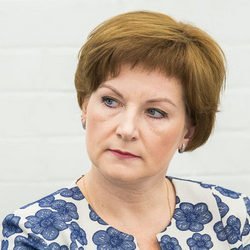Russia’s consumer protection watchdog: Tatarstan residents can go on tours cancelled due to COVID-19 this year
For the same amount of money until 31 December
The Tatarstan office of Russia’s consumer rights protection watchdog received over 7,000 petitions from Tatarstan residents in 2020. As vice chief physician of the republic Marina Trofimova noted at a press conference dedicated to World Consumer Rights Day on 15 March, the number of complaints had notably increased compared to previous years. The supervisory agency sees restrictive measures due to COVID-19 as the reason.
Citizens demanded to get their money back or asked for compensations for the services not provided by tour agents, organisers of concerts, airlines the most. There were made a lot of complaints because of online sales that increased last year. According to inspectors, not all entrepreneurs were honest when selling a good or providing a service on the Internet.
Talking about failed tours, the physician explained that the order of receiving a refund for unused tickets, tours and concerts was regulated in summer 2020 according to a series of decrees of the Russian government:

New trade rules in defence of consumer
Not to come across swindlers or low-quality commodity, Marina Trofimova advised consumers to check a seller’s reliability on the websites of the watchdog and the tax inspection. If simply a natural person is paid for a commodity or service, not a sole trader or company, it will be very hard to prove the illegality of the deal. The duration of the company’s operation on the Internet is another thing one should pay attention to: swindlers’ websites often operate for no more than a year.
New rules of trade have been in force in Russia since January. For instance, if the buyer demands to terminate a sale and purchase agreement and get his money back, the seller has 10 days for this, 7 days are given to exchange a low-quality commodity, the seller has 45 days to examine a good, this will be considered the seller’s administrative offence. As for shopping centres, since this year, any consumer has got a chance of taking a photo or shooting a video of the offences he sees in the store, which will be evidence when defending his rights in court.
Online store sellers now are obliged to provide a sale and purchase agreement, indicate the number of the order in the document, terms of the agreement. While according to the new rules, a relative of the buyer can receive a commodity too, without any document if he provided the number of the agreement or order.
The possibility of checking the quality of fuel at any petrol station became a useful novelty for car owners. For this purpose, one can ask a worker of the petrol station to provide a notarised copy of petrol’s quality certificate with all necessary information — the place of production, the factory, the address fuel was delivered to this petrol station.
Fake milk and butter from neighbouring regions
Experts of the republican State Alcohol Inspectorate oversee the quality of goods, especially food. According to leading adviser to this inspectorate’s Development and Coordination Department Elmira Shafigullina, 735 names of products were checked in Tatarstan. According to the inspection, 17% of them (128 products) didn’t meet some requirements of the legislation. Violations are often found in sour milk products. As the speaker noted, 22 out of 99 butter brands violated state standards and regulations of the Customs Union, while counterfeits were sold in 9 cases. 15 out of 79 checked milk brands didn’t comply with standards, commodities of 5 brands were fake. Animal fats in such products are often substituted for vegetable ones, for instance, palm oil fractions, which are harmful to health.
Manufacturers of counterfeit products quite skilfully imitate the taste of a natural product thanks to artificial flavours and various chemical additives, so an ordinary consumer will unlikely distinguish a fake by just tasting it. Small companies outside the Republic of Tatarstan more often make such violations. The fact that three different companies making milk products have the same address can also be suspicious for the consumer. Such milk counterfeits also come from shelves of stores in Ulyanovsk and Samara Oblasts.
This is why experts recommend buying products of Tatarstan manufacturers, though they also receive remarks. But the remarks are made mostly because of violations of microbiological indicators. Here a “shoulder length” principle works, Marina Trofimova added. It is a short delivery time, while means the producers try to use only natural ingredients, the product isn’t added some conservatives to extend its shelf life.
“The control of supervisory agencies, the government, ministers and departments — the Ministry of Industry and Trade, Ministry of Agriculture — in the republic is strict enough. All large producers are known, and they also control the quality of products that are made,” the speaker noted.
As for this year, the number of complaints from Tatarstan’s population doesn’t reduce — the republican office of Russia’s consumer rights protection watchdog has received over 2,500 petitions since January.